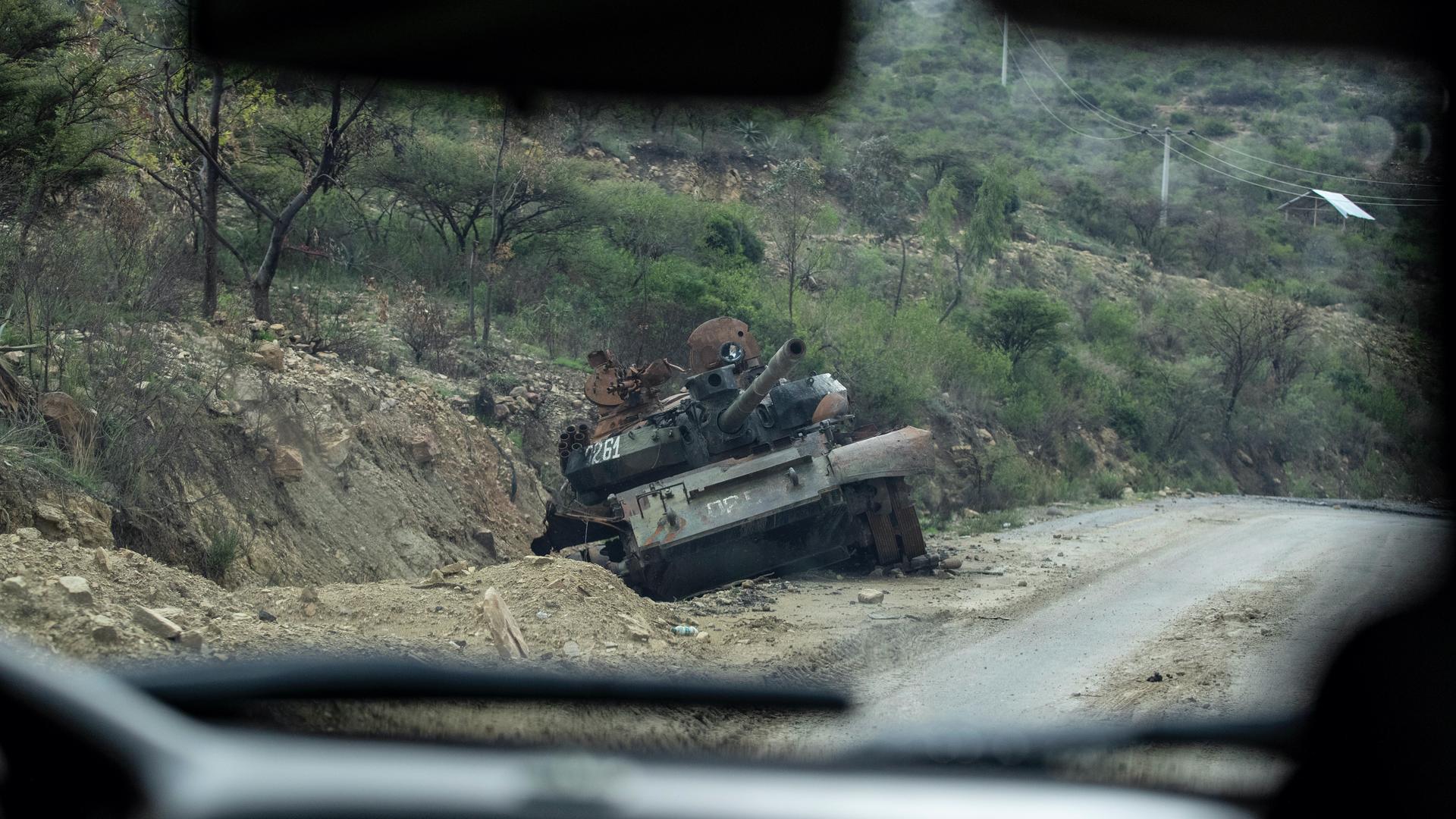On Monday, the Tigray People’s Liberation Front (TPLF) announced it had recaptured the Tigray capital of Mekelle from Ethiopia’s federal government.
It signals a major turning point in a conflict that has lasted more than six months, displaced millions of people and racked up an estimated death toll in the thousands.
Related: Tigray region faces deteriorating crisis 3 months into conflict
“We want to congratulate that our capital city Mekelle is under full control of our forces, and the elected regional government is reinstated,” said Liya Kassa, a spokesperson for the regional Tigray government that was dissolved when the conflict broke out.
The latest development is a striking turnabout — six months ago, Ethiopia’s federal troops launched a major offensive on the city, chased the Tigray forces out and installed an interim government in the city.
Related: Rising anger as youth get caught up in Tigray war
On Monday, the federal government announced a ceasefire for humanitarian reasons, following a request from Tigray’s interim administration.
“During the summer, we need the farmers to give a break to cultivate using what they have. Second, until now, we have enough food aid to those in need.”
“During the summer, we need the farmers to give a break to cultivate using what they have. Second, until now, we have enough food aid to those in need,” Dr. Abraham Belay, head of the interim Tigray government, said on state media.
He said that many of the “destructive” Tigray forces have been defeated, but claimed there are some who are open to discussions with the federal government.
The situation on the ground remains unclear and communications are down across Tigray. But in a recent statement, the TPLF said they would continue fighting their enemies. They didn’t say whether they would accept the ceasefire announced by the federal government.
Support for the TPLF remains high in and out of Ethiopia.
On Sunday, around 200 Tigrayans living in neighboring Sudan came together for a TPLF-sponsored, fundraising event for refugees. Since the conflict, more than 60,000 Ethiopians have fled to neighboring Sudan and now live in refugee camps.
Related: From Sudan, Ethiopian refugees tell their stories
The atmosphere was energetic — Tigrayans young and old danced to patriotic music, and wore T-shirts supporting the Tigray defense forces. Women sat around a table, counting cash donations.
Solomon Gebremedhin, a TPLF leader in Khartoum, said Tigray forces have been making gains and taking back areas in Tigray. Their resolve is high, he said, especially after seeing the atrocities committed during the conflict.
All parties, including TPLF forces, have been accused of human rights violations.
“In [the] Orthodox church, there is no doctrine that order[s] you to kill people. But rather [it] advises you to solve differences under a table.”
“In [the] Orthodox church, there is no doctrine that order[s] you to kill people. But rather [it] advises you to solve differences under a table,” said Rev. Kasai Alam, an Orthodox priest at the Medhanialem church in Khartoum.
Alam comes from the area around Axum, where religious buildings have reportedly been destroyed during the conflict.
Related: Amnesty report describes Axum massacre in Ethiopia’s Tigray
As the night waned, attendees stopped in front of Kasai to be blessed by the wooden Orthodox cross that he held. Even for him, the conflict has taken a toll.
“I used to travel to Tigray to visit my family. However, after this conflict, I couldn’t travel and see them,” he said.
Six months later, he still hasn’t heard from or seen his family.
The United Nations Secretary-General António Guterres said he spoke with Ethiopia’s prime minister, Abiy Ahmed.
Guterres said he hoped that hostilities would end in Tigray to allow humanitarian aid — which has been restricted since the conflict began — to reach those in need and pave the way for a political solution to the conflict.
